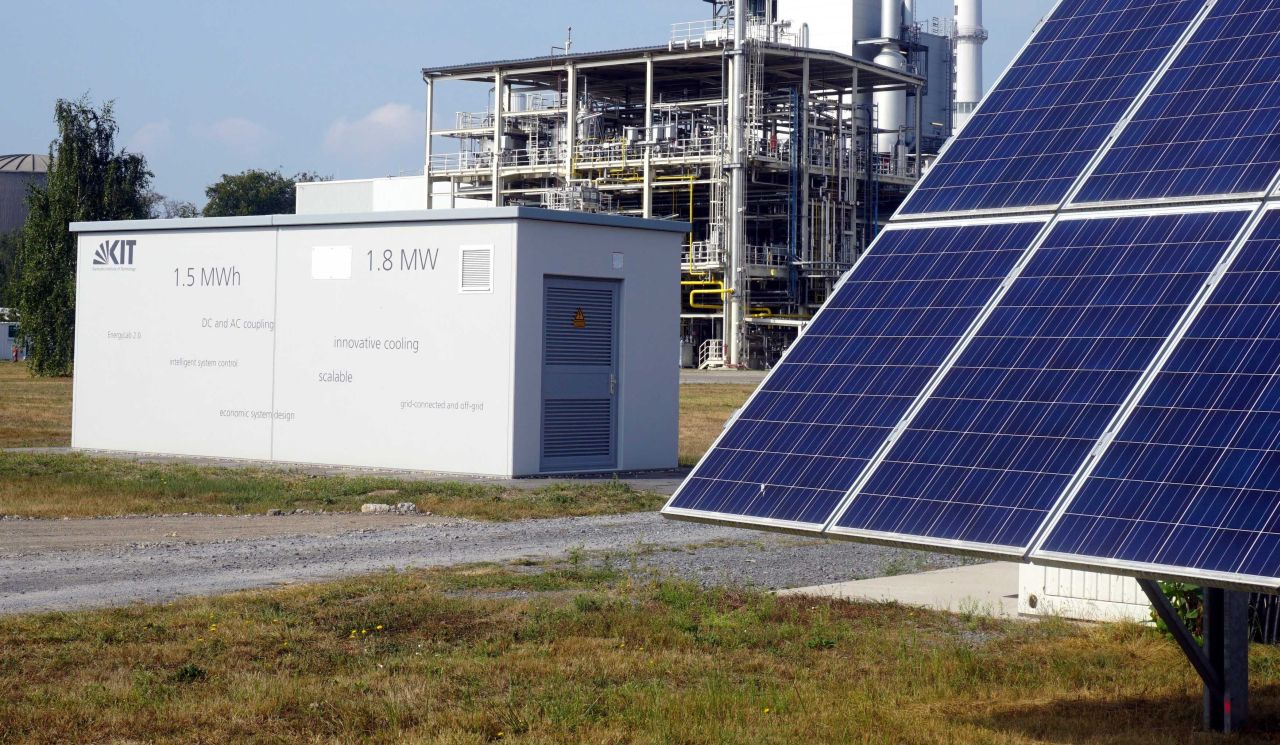Storage of renewable energies and smart integration of storage devices in decentralized grid systems are decisive factors for future stable energy supply. Under coordination of KIT, the SmILES project pools know-how in simulation, optimization, and use of such infrastructures throughout Europe. The objectives are building a platform to exchange data and best practices about the integration of heterogeneous energy resources and their storage technologies, and strengthening combined European research.
The Energiewende gives rise to more and more decentralized power supply systems fed by a variety of energy resources. Their fluctuating contributions will be concentrated and balanced in this way by an intelligent overall supply grid in the future. “There is no longer the single energy source supplying everything,” explains Isabelle Südmeyer, coordinator of SmILES (Smart Integration of Energy Storages in Local Multi Energy Systems). Hence the demand for flexible and sustainable multi-energy systems ensuring stable supply conditions even if the share of renewable energies were to rise.
One of the challenges faced under these conditions is management of the fluctuating supply from renewable resources and consumption by means of smart storage technologies in such a way that there is an equilibrium, and that hybrid grids can be run efficiently and economically, for instance, for electricity and heat supply. True, there are a large number of research projects in Europe investigating how different energy resources and their respective storage technologies can be integrated in an overall grid system. However, they are based on different research approaches, tools, and heterogeneous boundary conditions.
This is the point of departure of SmILES. In the course of the project, the six research partners want to combine their existing methodologies and findings and analyze which simulations, models, and optimizations not only are comparable, but also can be generalized and extrapolated to other situations as part solutions. Research projects in urban quarters, a small town in a rural environment, an industrial plant, and the KIT research campus produce a variety of application scenarios and systems configurations to be fed into the project. On this basis, a generally accessible data platform is to be established which is to provide the research community with analyses and information about energy consumption and energy supply in a variety of contexts.
“As our long-term objective, this combination of European research projects is to be opened up to other partners and to be institutionalized,” emphasizes Südmeyer. SmILES is part of the European Common Research and Innovation Agenda (ECRIA) and is to support implementation of the objectives of the Strategiy Energy Technology Plan (SET plan). Besides KIT as the coordinator, participants in the project are the Austrian Institute of Technology GmbH (AIT), Danmarks Tekniske Universitet (DTU), Electricité de France SA (EDF), the European Energy Research Alliance (EERA AISBL), and the Vlaamse Instelling Voor Technologisch Onderzoek N.V. (VITO). The overall budget is EUR 2,440,683, of which EUR 909,439 is used for the KIT subproject. SmILES will run until November 30, 2019.
Further information:
http://www.sci.kit.edu/205.php
More about the KIT Energy Center: http://www.energy.kit.edu
In close partnership with society, KIT develops solutions for urgent challenges – from climate change, energy transition and sustainable use of natural resources to artificial intelligence, sovereignty and an aging population. As The University in the Helmholtz Association, KIT unites scientific excellence from insight to application-driven research under one roof – and is thus in a unique position to drive this transformation. As a University of Excellence, KIT offers its more than 10,000 employees and 22,800 students outstanding opportunities to shape a sustainable and resilient future. KIT – Science for Impact.

